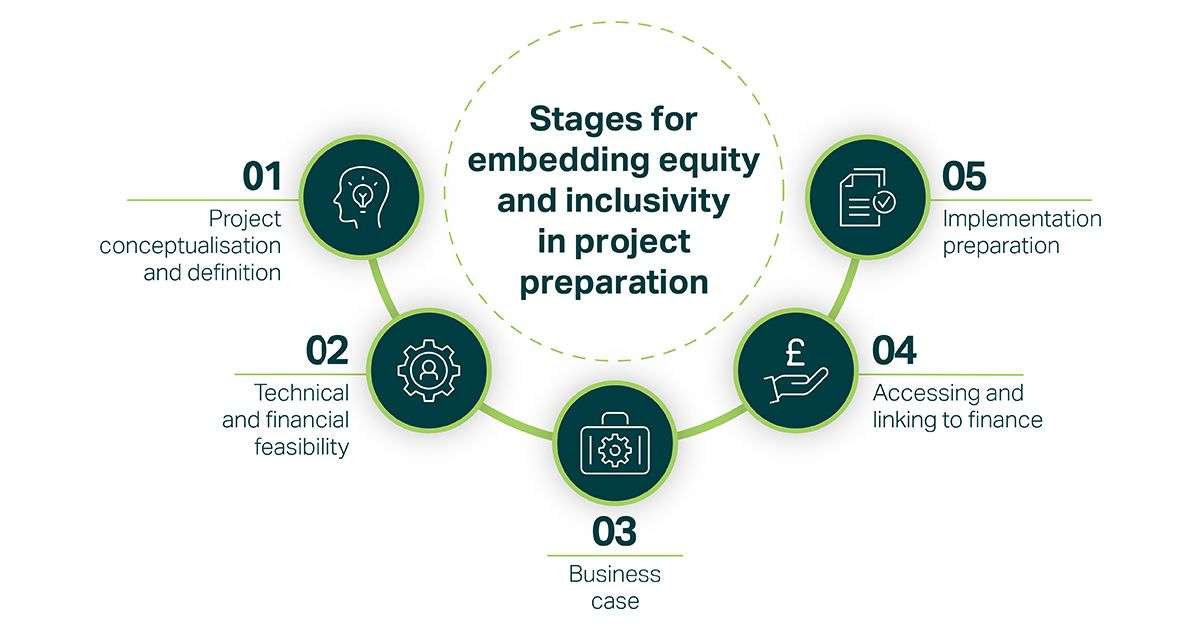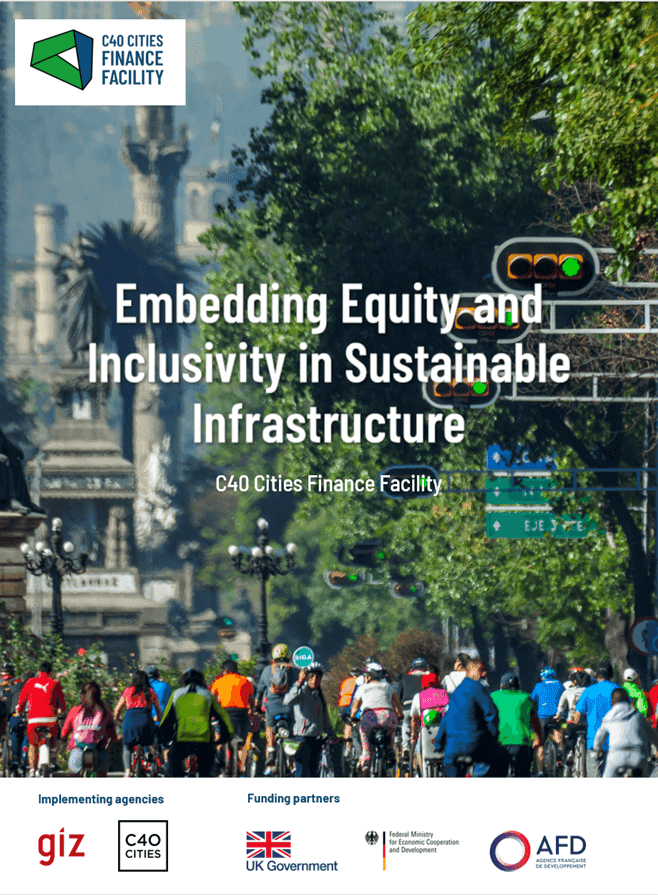
Mainstreaming equity: a toolkit for designing inclusive infrastructure
Discover how our work with C40 Cities is helping cities embed equity and inclusion considerations into the design of sustainable infrastructure.
When developing sustainable infrastructure projects in cities, officials and project developers are often encouraged to identify how their projects can contribute to improving social equity and inclusion outcomes. However, without the right guidance, knowledge or tools, it can be challenging to identify specifically how and when to embed actions within complex infrastructure projects to achieve these outcomes.
For this project, we partnered with the C40 Cities Finance Facility (CFF), a scheme set up to facilitate access to finance for climate mitigation and resilience projects in cities. The CFF is part of C40 Cities, a global network of mayors of the world’s leading cities that are united in action to confront the climate crisis.
Through research projects and initiatives such as this one, C40 Cities empowers cities to build healthy, equitable and resilient communities and help the world limit global heating to 1.5°C. Our goal was to develop a suite of materials – including sector-specific training modules, a guidance document and a digital toolkit – to help planners and city officials incorporate equity and inclusion considerations into sustainable infrastructure projects.
Why is AECOM working with C40 Cities?
With climate change magnifying societal inequalities and marginalised and vulnerable people bearing the brunt of climate impacts, there is an urgent need for climate solutions to be proactively seeking ways to promote inclusion and equity. The majority of those vulnerable to climate change live on the frontline of existing weather extremes and suffer from perpetual inequalities. Without equitable strategies and action on climate change, 100 million people could be forced into extreme poverty by 2030.
Infrastructure projects that consider and address impacts on vulnerable communities are therefore essential for creating equitable and climate-resilient cities. How effectively communities are engaged and how meaningfully their views and realities are considered in project design, planning and implementation will have a direct impact on the quality and sustainability of projects.
The C40 Cities CFF project preparation process for sustainable infrastructure offers several entry points to help embed decisions that will have a long-term impact on how a project impacts on people and communities.

A comprehensive, easy-to-use and versatile toolkit
With a focus on materials that are accessible and relevant for cities and developers across the globe, the guidance document supports those developing infrastructure projects to understand where the entry points for embedding equity and inclusion are across the project preparation cycle – from project conception, through to procurement and implementation.
Interactive trainings were developed to help provide users with a more nuanced understanding of equity and inclusion issues across four key sustainable infrastructure sectors: nature-based solutions, net zero buildings, solid waste management and mass transit. The materials help to identify potential challenges and opportunities that are relevant to each sector, using examples from around the world. All the materials including the guidance document, the trainings and tools were built for maximum compatibility and can be applied to any geography.
Benchmarking and assessing progress
To help bring the issues to life, the digital toolkit can be used as a checklist to benchmark and assess progress against equity and inclusion ambitions. The toolkit can also help teams reflect on specific issues. For example, how differentiated transport fare pricing might support equity within cities, or how river restoration projects should consider reviewing land acquisition in places where vulnerable settlements may be present.
Using the equity and inclusion materials, planners, developers and city officials are provided with the necessary information and guidance to take a holistic view and identify and address risks and opportunities to promote equity and inclusivity at different stages of project preparation.
Creating more inclusive and equitable projects
As cities and communities seek to address the climate crisis through green infrastructure, they can proactively find ways to make those investments work for both planet and people. Relatively small modifications to the way a project is designed and delivered can have a strong positive impact on creating more inclusive and equitable projects.
By equipping planners and city officials with the tools to address these issues head on, we’re helping to enable sustainable development whilst improving access and quality of life outcomes for all.
